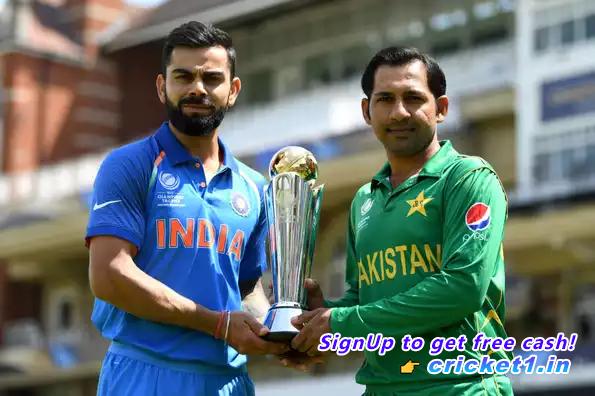
In a significant turn of events, the recent visit of India’s External Affairs Minister S Jaishankar to Pakistan has injected new life into discussions surrounding the possibility of the Indian cricket team’s participation in the upcoming Champions Trophy, which is scheduled to be held in Pakistan. This development, although far from solidifying plans, has stirred interest and prompted conversations across various cricketing corridors.
The crux of these high-level discussions reportedly took place not only between Minister Jaishankar and his Pakistani counterpart, Ishaq Dar, but also involved key figures from the cricketing world. Mohsin Naqvi, the chairman of the Pakistan Cricket Board (PCB) who also serves as a government minister, is said to have joined the deliberations at a certain point, underscoring the importance of the matter for both diplomatic and sporting relations between the two countries.
Despite the discussions, the final decision regarding whether the Indian cricket team will indeed travel to Pakistan for the prestigious eight-nation, 50-over cricket tournament rests with the Indian Government. At this juncture, significant cricketing bodies, including the Board of Control for Cricket in India (BCCI) and the International Cricket Council (ICC), are unable to provide any definitive confirmation.
In the aftermath of Minister Jaishankar’s diplomatic visit, some promising developments have emerged, particularly concerning the scheduling and logistics of the tournament. According to reports, the PCB has extended an offer to the BCCI, expressing its willingness to accommodate the Indian team’s security concerns by providing assistance for their return to India after each match. This unique arrangement has been made feasible by the considerable gaps in the tournament schedule, especially the week-long interval between the last two matches.
The Champions Trophy is slated to occur from February 19 to March 9, with fixtures planned across several cities including Lahore, Rawalpindi, and Karachi. However, with an eye on security and logistical simplicity, an emphasis has been placed on Lahore, where all of India’s matches are expected to take place. Lahore’s proximity to the Indo-Pak border further enhances the feasibility for Indian fans who may wish to attend the matches, adding a layer of convenience for cross-border travel.
India’s scheduled matches include a face-off against Bangladesh on February 20, a highly anticipated India-Pakistan match on February 23, and a contest against New Zealand on March 2.
. Amidst these preparations, intriguing updates have surfaced regarding the tournament timetable. The ICC has disseminated the complete schedule to all stakeholders, fuelling widespread anticipations.
Reports in national media revealed that a request, allegedly from the broadcaster, was made to the ICC to relocate the India-New Zealand match to a different venue. The PCB has reportedly suggested Rawalpindi as an alternative site for this match. However, both ICC officials and the broadcaster have publicly denied receiving or making any such request.
Despite these complexities, the participation of the Indian cricket team is deemed critical for the success of the Champion’s Trophy. The global cricketing community recognizes that India’s involvement is essential, whether the tournament takes place entirely in Pakistan or adopts a hybrid model with matches occurring in a different country. The absence of the Indian team could significantly diminish the tournament’s appeal, particularly affecting broadcast rights and viewership.
In light of these dynamics, the ICC and PCB have proactively designed contingency plans that include holding India’s matches outside Pakistan should the team choose not to travel. Meanwhile, the leadership of the England and Wales Cricket Board (ECB) remain optimistic about a resolution to ensure India’s participation. “There are numerous alternatives and contingencies available if the initial plans don’t come through,” remarked ECB Chair Richard Thomson in a statement to Reuters. He underscored that the tournament proceeding without India would be unlikely, given the indispensable value of India’s presence for broadcast rights.
In summary, while no conclusive decision has been reached, the dialogue between India and Pakistan regarding cricket diplomacy reflects a renewed effort to bolster bilateral ties through the sport, with hopeful prospects of India’s eventual participation in the Champions Trophy still on the horizon.

